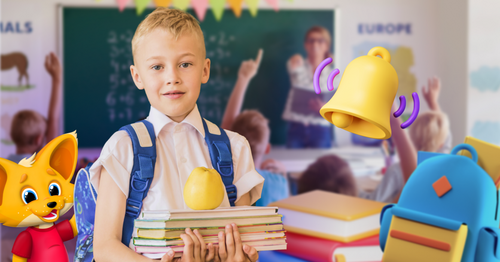Mistakes That Might Trip Up Young Learners
1. Over-correcting:
While guiding children is essential, nitpicking every little error can diminish their enthusiasm. Language learning, especially in the early stages, is more about immersion and less about perfection.
2. Bypassing Phonetics:
English is a phonetic language. We might inadvertently set the stage for pronunciation and spelling challenges by overlooking this aspect.
3. Relying Solely on Textbooks:
Though textbooks offer structured learning, exclusively depending on them can sap the joy out of the learning experience.
4. Using Advanced Language:
Conversations too high above a child’s comprehension level might not be instructive. It's about striking the right balance between challenging and accessible.

Did You Know?
Children exposed to multiple languages before age five often excel in cognitive areas like problem-solving and creativity. And while English boasts over 170,000 words, the average individual's vocabulary is between 20,000 and 35,000. Talk about selective memory!
Strategies for a Seamless English Learning Experience
1. Embrace Positive Reinforcement:
"The more that you read, the more things you will know. The more that you learn, the more places you'll go." – Dr. Seuss
Celebrate your child's successes, no matter how small. Boosting their confidence can lead to a genuine love for learning.
2. Introduce Phonics Early:
Make learning sounds enjoyable. Consider phonics-based games or rhymes to weave fun into education.
3. Blend Traditional with Modern:
In this digital age, an array of apps and online tools are tailored for young learners. Complement textbook lessons with these interactive resources.
4. Adapt Your Language Level:
Meet your child where they are. Start with simpler sentences and words, gradually increasing complexity as they grow.
Parting Tips for Parents

- Consistency is Crucial: Regular practice enhances language retention like any skill.
- Be Their Role Model: Your excitement for English can be infectious. Share stories, sing songs, and dive into books together.
- Diversify Learning Materials: Think outside the box—children's novels, music, and educational shows can all be potent tools in your arsenal.
Remember, every child’s learning journey is unique. Celebrate their progress, stay patient during their challenges, and enjoy the beautiful journey of language exploration together.








